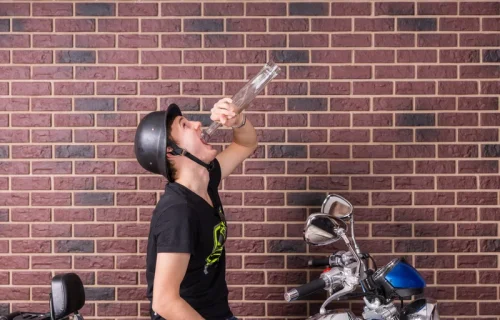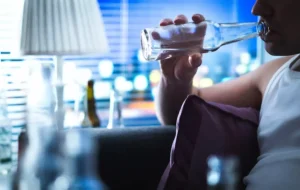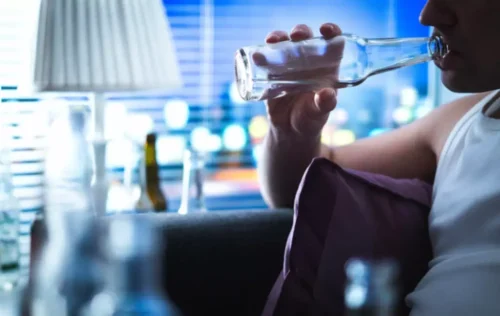
If you are experiencing dry mouth or skin, headaches, muscle cramps, or dark-colored urine, these are signs of dehydration. You can reverse dehydration by taking in more fluids, but some people may be at risk of complications. This also means drinking alcohol on an empty stomach can lead to a higher blood alcohol content (BAC). Although red wine is often celebrated for its heart-protective properties, drinking alcohol isn’t risk-free. Excessive alcohol intake, in particular, can adversely impact various aspects of your well-being, from your immediate safety to your long-term health. However, more recent research warns against using alcohol as a strategy for improving heart health, says Andrews.
Moderate Dehydration

Dehydration occurs when fluid loss is greater than fluid intake. Let’s look at the most dehydrating drinks and discover what beverages you should drink to stay hydrated. Drinking on an empty stomach can cause other long-term damage, particularly to the liver. Your liver is responsible for metabolizing alcohol, and heavy drinking over long periods can lead to irreversible damage. According to the CDC, heavy drinking equates to more than three drinks per day or eight drinks per week for females and more than four drinks per day or 15 drinks per week for males. A person who is already at risk of dehydration from one or more of the above factors should avoid or limit alcohol consumption.
- You may experience increased urination, sweating, and other means of bodily waste disposal when you drink alcohol.
- Not all alcoholic drinks will affect your hydration status to the same extent.
- When its processed by enzymes in the liver, alcohol is converted into a large amount of acetaldehyde.
- And to top it off, both Zeitlin and Rumsey explain, drinking alcohol will also make you urinate more often.
A Doctor Weighs In On Whether White Claw Is Actually Hydrating
Dehydration contributes to hangovers but is just a piece of the puzzle. Karen Ansel, M.S., RDN, is a nutritionist, journalist and author. In her 20-plus years of experience, she has written hundreds of health-focused articles about food, nutrition, fitness and wellness. Her work has appeared in EatingWell, Women’s Health, Weight Watchers, Men’s Health, Shape, Woman’s Day, Prevention, Fitbit and other publications and websites. Sodium is an electrolyte mineral found in many foods, and most people obtain adequate amounts from table salt. Below are examples of functional changes you might notice at different levels of intoxication.

General Health
While moderate alcohol consumption may offer some small cardiovascular benefits, the risks of consumption may outweigh these potential benefits. Additionally, drinking excessively has been shown to increase the risk of accidents and injuries. Longer-term, it may impair liver function, increase the risk of certain cancers and adversely affect cognitive and mental health. Between your Thursday night wine and your Saturday night cocktail, you have a fairly good sense of what kind of hangover you’re in for on Friday and Sunday mornings. But beyond the type of alcohol you’re imbibing, you might not realize how much dehydration enters into the hangover equation.
Coffee, tea, and soda
While drinking plenty of water is crucial to compensate for the fluid loss caused by alcohol, water alone will not hydrate you. Rehydrating after consuming alcohol helps alleviate dehydration and can reduce the likelihood of a hangover. While water is one of the best drinks for hydration, drinking plain water without electrolytes can worsen dehydration.
One study with over 3200 participants found excessive alcohol consumption is linked to accelerated facial aging. The effects here include increased facial lines, eye puffiness, loss of facial volume, and broken blood vessels. So, of course, nothing is going to beat water (or even better, a drink packed with essential electrolytes such as Hydrant) for hydration.
Binge drinking is when a person consumes an excessive amount of alcohol within a short period of time. This equates to drinking five or more drinks within 2 hours for males and four or more drinks within 2 hours for females. According to the CDC, drinking alcohol in moderation is safe for most people. A moderate amount equates to one glass of alcohol or less per day for females and two glasses of alcohol or less per day does alcohol hydrate or dehydrate you for males.
Does Alcohol Dehydrate Muscle, Skin, or Both?
- But if you insist on having a drink or two, there are things you can do to mitigate the dehydrating effects of alcohol.
- It’s the reason why you can usually sleep through the night without having to urinate.
- You’ll also have the opportunity to connect with our licensed Reframe coaches for more personalized guidance.
- This happens when a person loses more fluids than they take in.
- It can also cause muscle cramps due to an imbalance of electrolytes in the body, such as sodium, potassium, and magnesium, which are essential for proper muscle function.
Excessive urination causes your body to lose vital electrolytes. These include things like sodium, potassium, calcium, and chlorine. Alcohol increases urination, depletes electrolytes, and interferes with the body’s ability to restore fluid balance, all of which are primary causes of fluid loss and dehydration. Alcohol can increase urine production, which can lead to dehydration. When the body is dehydrated, it tries to conserve water by producing less urine.
Herbal teas are caffeine-free and a great alternative to coffee and caffeinated tea, which have diuretic effects. Watch the video below to find out if you show signs of dehydration. The legal blood alcohol concentration limit in the United States is 0.08%. It’s not safe to consume any alcohol and drive, but at this level, driving a vehicle is considered unsafe and illegal, and driving while intoxicated could lead to fines and jail time. Its diuretic effects lead to wrinkled, gray, lackluster skin that can look swollen and puffy.

Why Is Alcohol a Diuretic?
A heavy alcoholic drink like whiskey, brandy, or rum can dehydrate you more than lighter drinks. Stick to beer and wine to mitigate any dehydration you may experience. Contrary to popular belief, alternating alcoholic drinks and water will not help you avoid dehydration. But you can certainly ensure you are as hydrated as possible before consuming alcohol.
